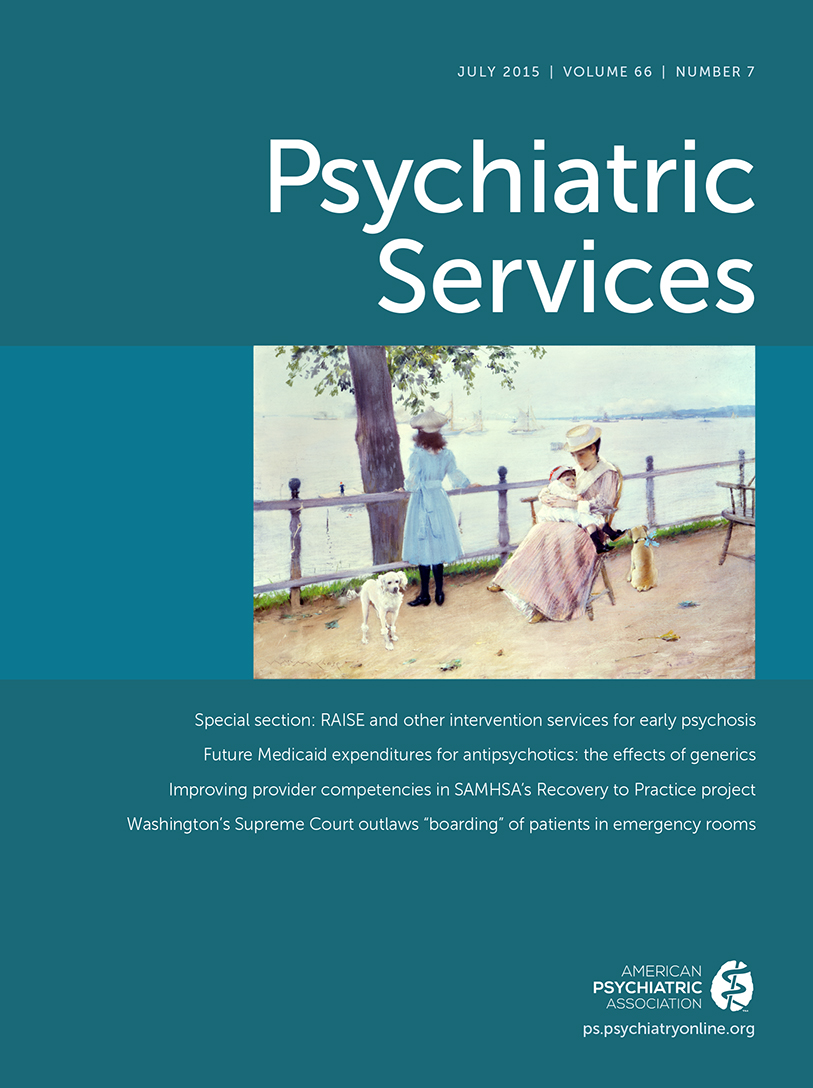First-Episode Services for Psychotic Disorders in the U.S. Public Sector: A Pragmatic Randomized Controlled Trial
Abstract
Objective:
This study sought to determine the effectiveness of a comprehensive first-episode service, the clinic for Specialized Treatment Early in Psychosis (STEP), in an urban U.S. community mental health center by comparing it with usual treatment.
Methods:
This pragmatic randomized controlled trial enrolled 120 patients with first-episode psychosis within five years of illness onset and 12 weeks of antipsychotic exposure. Referrals were mostly from inpatient psychiatric units, and enrollees were randomly allocated to STEP or usual treatment. Main outcomes included hospital utilization (primary); the ability to work or attend age-appropriate schooling—or to actively seek these opportunities (vocational engagement); and general functioning. Analysis was by modified intent to treat (excluding only three who withdrew consent) for hospitalization; for other outcomes, only data for completers were analyzed.
Results:
After one year, STEP participants had less inpatient utilization compared with those in usual treatment: no psychiatric hospitalizations, 77% versus 56% (risk ratio [RR]=1.38, 95% confidence interval [CI]=1.08–1.58); mean hospitalizations, .33±.70 versus .68±.92 (p=.02); and mean bed-days, 5.34±13.53 versus 11.51±15.04 (p=.05). For every five patients allocated to STEP versus usual treatment, one additional patient avoided hospitalization over the first year (number needed to treat=5; CI=2.7–26.5). STEP participants also demonstrated better vocational engagement (91.7% versus 66.7%; RR=1.40, CI=1.18–1.48) and showed salutary trends in global functioning measures.
Conclusions:
This trial demonstrated the feasibility and effectiveness of a U.S. public-sector model of early intervention for psychotic illnesses. Such services can also support translational research and are a relevant model for other serious mental illnesses.




